Hislop’s Two Babylons is one of the most devastating books ever written critiquing the Roman Catholic Religion. It exposes the Babylonian Paganism which under-girds the Romanist system. However, a man named Ralph Woodrow, who learned from Hislop, later rejected many of Hislop’s claims. His favorite criticism is,
“One can check the articles on “Nimrod” and “Semiramis” in recognized reference works. Not one says anything about Nimrod and Semiramis being husband and wife! They did not even live in the same century!”
http://www.ralphwoodrow.org/books/pages/babylon-connection.html
Woodrow is terribly mistaken.
Thus 5 ancient Historical sources that claim that Nimrod and Semiramis did indeed live in the same century and were in fact married:
(Hislop points out on page 41 that Nimrod is Ninus)
Justin, Epitome of Pompeius Trogus, HISTORY OF THE WORLD, Book I,
“I. ORIGINALLY,5 the government of nations and tribes was in the hands of kings; 6 whom it was not their flattery of the people, but their discretion, as commended by the prudent, that elevated to the height of this dignity. The people were not then bound by any laws; the wills of their princes were instead of laws. It was their custom to defend, rather than advance, 7 the boundaries of their empire. The dominions of each were confined within his own country.
The first of all princes, who, from an extravagant desire of ruling, changed this old and, as it were, hereditary custom, was Ninus, king of the Assyrians. It was he who first made war upon his neighbours, and subdued the nations, as yet too barbarous to resist him, as far as the frontiers of Libya Sesostris,8 king of Egypt, and Tanaus,9 king of Scythia, were indeed prior to him in time; the one of whom advanced into Pontus, and the other as far as Egypt; but these princes engaged in distant wars, not in struggles with their |4 neighbours; they did not seek dominion for themselves, but glory for their people, and, content with victory, declined to govern those whom they subdued. But Ninus established the greatness of his acquired dominion by immediately possessing himself of the conquered countries.10 Overcoming, accordingly, the nearest people, and advancing, fortified with an accession of strength, against others, while each successive victory became the instrument of one to follow, he subjugated the nations of the whole east. His last war was with Zoroaster, 11 king of the Bactrians, who is said to have been the first that invented magic arts, and to have investigated, with great attention, the origin of the world and the motions of the stars. After killing Zoroaster, Ninus himself died, leaving a son called Ninyas, still a minor, and a wife, whose name was Semiramis.12”
http://www.tertullian.org/fathers/justinus_03_books01to10.htm
Ammianus Marcellinus, Roman History, Book 23
“22. In this district of Adiabene is the city of Nineveh, named after Ninus, a most mighty sovereign of former times, and the husband of Semiramis, who was formerly queen of Persia, and also the cities of Ecbatana, Arbela, and Gaugamela, where Alexander, after several other battles, gave the crowning defeat to Darius.”
Eusebius, Chronicle, Assyrian Chronicle,
“Belus, about whom we spoke earlier, died and was regarded as a god. After him Ninus ruled the Assyrians as king for 52 years. He married Semiramis. After [Ninus], Semiramis was the monarch for 42 years…No testimony of the first kings of the Asian world [g83] has survived–neither about their deeds nor [even] their names. Ninus was the first king of the Assyrians found to be worthy of historical remembrance. [Ninus]’ deeds and valor were great, and we shall endeavor to describe them briefly. And [Diodorus] informs after narrating other things, that Ninus had a son Ninyas from Semiramis, and that after [Ninus]’ death, Semiramis buried Ninus’ body in the palace [out of sight] and stopped being queen [ruling instead as king]. Then after a bit [Diodorus] says that Semiramis ruled over all the Asians except the Indians. She died as we previously stated after living 62 years and [g84] reigning for 42 years.”
[15]-[16]
Diodorus Siculus, Library of History, Book II
“4 Since after the founding of this city Ninus made a campaign against Bactriana, where he married Semiramis, the most renowned of all women of whom we have any record, it is necessary first of all to tell how she rose from a lowly fortune to such fame.”
http://penelope.uchicago.edu/Thayer/E/Roman/Texts/Diodorus_Siculus/2A*.html
The Historical Library of Diodorus the Sicilian, Volume 1, translated by Booth, Book 2 Chapter 1,
“Ninus being thus successful and prosperous, his ambition rose the higher…When he had finished his work here, he marched with an army against the Bactrians, where he married Semiramis”.
100-102
I will admit though that Ridpath’s, Volume 9, 172-173 does say that Semiramis was the wife of Vol-Lush not Nimrod.
Hislop’s book has never been refuted by any Scholarly work and Woodrow’s attempt has been shown to be elementary scribbling contrasted with the Scholarly work of Hislop. Hislop will never be refuted. Sorry guys. There is a reason why the Roman Catholic Church has never written a Scholarly reply to Hislop. It cannot be done. Hislop consulted the greatest historians of his day. It is useless.
Now Woodrow also like to use a typical Crypto-Catholic excuse that Pagan associations should not be pointed out as if they proved something or were causal or in themselves proved religious synchronization. This is terribly ignorant and ignores the greatest Protestant work on this issue: Gillespie’s English Popish Ceremonies. Second, Catholics and Eastern Orthodox apologists are the most prolific proponents of this method as they habitually refer to Calvinism as Gnosticism and Manichaeism; which I refuted in my Systematic Theology over a span of almost 800 pages.
Here we have God commanding the destruction of objects due to their pagan associations:
Deu 12:2 Ye shall utterly destroy all the places, wherein the nations which ye shall possess served their gods, upon the high mountains, and upon the hills, and under every green tree: Deu 12:3 And ye shall overthrow their altars, and break their pillars, and burn their groves with fire; and ye shall hew down the graven images of their gods, and destroy the names of them out of that place.
Gen 35:1 And God said unto Jacob, Arise, go up to Bethel, and dwell there: and make there an altar unto God, that appeared unto thee when thou fleddest from the face of Esau thy brother. Gen 35:2 Then Jacob said unto his household, and to all that were with him, Put away the strange gods that are among you, and be clean, and change your garments: Gen 35:3 And let us arise, and go up to Bethel; and I will make there an altar unto God, who answered me in the day of my distress, and was with me in the way which I went. Gen 35:4 And they gave unto Jacob all the strange gods which were in their hand, and all their earrings which were in their ears; and Jacob hid them under the oak which was by Shechem.
2Ki 10:26 And they brought forth the images out of the house of Baal, and burned them. 2Ki 10:27 And they brake down the image of Baal, and brake down the house of Baal, and made it a draught house unto this day. 2Ki 10:28 Thus Jehu destroyed Baal out of Israel
One of the most blatant pagan influences in Anchoretic Theology is their Theology Proper with the idea of Absolute Divine Simplicity and the Triune God. I have documented this in detail in my The Pagan Doctrine of God:
and also here:
https://eternalpropositions.wordpress.com/drakes-triadology-stuff/
The other is their pagan Holidays. Easter is the only ceremony that the Patristics can show for the first 2 centuries of the Church, “yet can neither be proved to have been observed in the apostles’ own age, nor yet to have been established in the after age by any law, but only to have crept in by a certain private custom.” Gillespie, English Popish Ceremonies, xi.
I have dealt with this issue in detail in my ST, Chapter 26.XI. (But examine the whole chapter)
http://olivianus.thekingsparlor.com/drake-s-systematic-theology
The third is their Ecclesiology which I dealt with in my ST, Chapter 30.
Irenaeus, Against Heresies (Book III, Chapter 2)
“The heretics follow neither Scripture nor tradition.
1. When, however, they are confuted from the Scriptures, they turn round and accuse these same Scriptures, as if they were not correct, nor of authority, and [assert] that they are ambiguous, and that the truth cannot be extracted from them by those who are ignorant of tradition. For [they allege] that the truth was not delivered by means of written documents, but vivâ voce: wherefore also Paul declared, But we speak wisdom among those that are perfect, but not the wisdom of this world.1 Corinthians 2:6 And this wisdom each one of them alleges to be the fiction of his own inventing, forsooth; so that, according to their idea, the truth properly resides at one time in Valentinus, at another in Marcion, at another in Cerinthus, then afterwards in Basilides, or has even been indifferently in any other opponent, who could speak nothing pertaining to salvation. For every one of these men, being altogether of a perverse disposition, depraving the system of truth, is not ashamed to preach himself.
2. But, again, when we refer them to that tradition which originates from the apostles, [and] which is preserved by means of the succession of presbyters in the Churches, they object to tradition, saying that they themselves are wiser not merely than the presbyters, but even than the apostles, because they have discovered the unadulterated truth. For [they maintain] that the apostles intermingled the things of the law with the words of the Saviour; and that not the apostles alone, but even the Lord Himself, spoke as at one time from the Demiurge, at another from the intermediate place, and yet again from the Pleroma, but that they themselves, indubitably, unsulliedly, and purely, have knowledge of the hidden mystery: this is, indeed, to blaspheme their Creator after a most impudent manner! It comes to this, therefore, that these men do now consent neither to Scripture nor to tradition.” (Christian Classics Ethereal Library Site)
The Gnostics said that to understand scripture you must have knowledge of tradition and the viva voce. That is exactly the principle the Roman Church Hierarchy and its Papacy operate off of.
Pseudo Dionysius based all his teachings of Church authority on the Gnostic and Neoplatonic hierarchies of Being. That is universally admitted. When Eck debated Martin Luther at the Leipzig Debate on the basis of Popery, Eck pointed to the Luciferian idea of “as above so below” and Dionysius the Areopagite’s (Pseudo-Dionysius) constructions in his Angelic, Ecclesiastical and Celestial Hierarchies as a basis for Rome’s Ecclesiology. Rorem points out in his classic work Pseudo Dionysius, page 32, that Bonaventure gave the Pope of Rome the highest place of authority as “a natural extrapolation of Dionysian principles.”
Finally, “UNAM SANCTAM”, Bull of Pope Boniface VIII, promulgated November 18, 1302,
“For, according to the Blessed Dionysius, it is a law of the divinity that the lowest things reach the highest place by intermediaries. Then, according to the order of the universe, all things are not led back to order equally and immediately, but the lowest by the intermediary, and the inferior by the superior. Hence we must recognize the more clearly that spiritual power surpasses in dignity and in nobility any temporal power whatever, as spiritual things surpass the temporal…Therefore, if the terrestrial power err, it will be judged by the spiritual power; but if a minor spiritual power err, it will be judged by a superior spiritual power; but if the highest power of all err, it can be judged only by God, and not by man, according to the testimony of the Apostle: ‘The spiritual man judgeth of all things and he himself is judged by no man’ [1 Cor2:15].”
What is inherently wrong with the Hellenistic idea of the Hierarchy of being?
1. It operates off absolute divine simplicity where the ultimate principle is a distinction-less monad, thus denying a trinity of ontologically distinct divine persons.
2. The monad, ipso facto precludes any kind of extension that includes distinctions, thus it cannot account for thinking, intellect, language, or a physical universe.
3. Intermediaries assume that pastors have lordly authority over common Christians. This contradicts 2 Cor 1:24. It is also ipso facto Gnosticism which is condemned in 1 John.
I have cataloged dozens of more problems with this surrounding theology here: http://eternalpropositions.wordpress…adology-stuff/



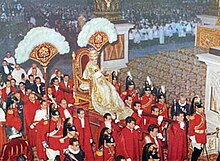
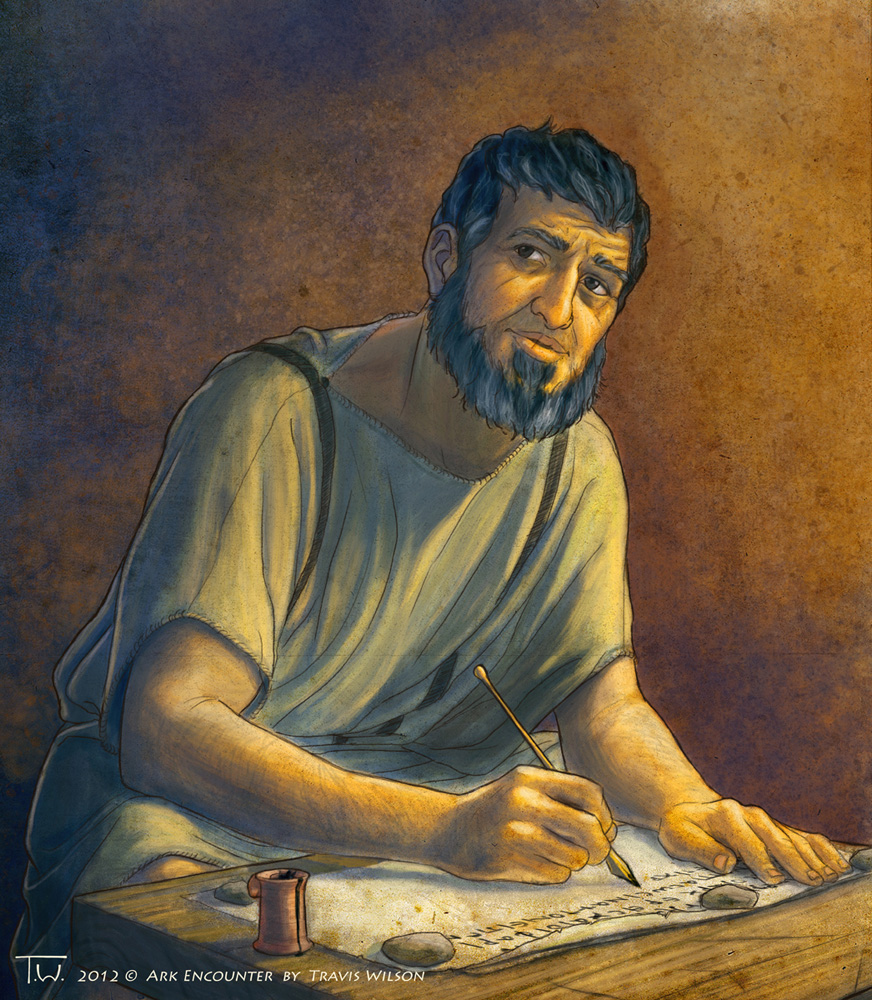


-1-.jpg)

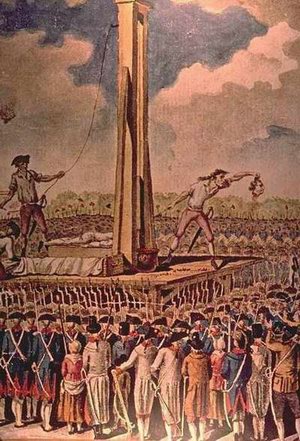












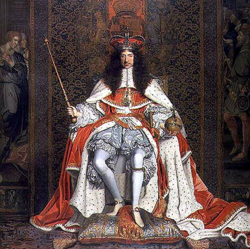
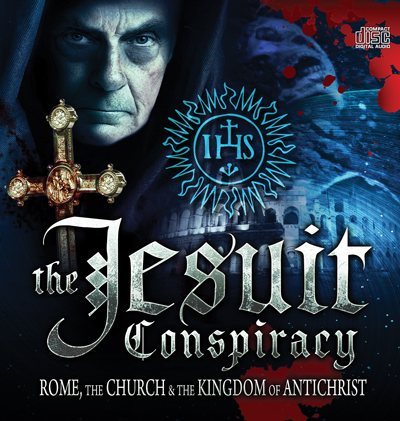









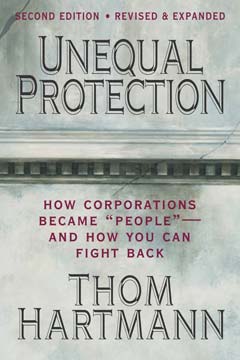
Here’s a link to Ralph Woodrow’s book review of Hislop’s The Two Babylon’s which was published in The Christian Research Journal
http://www.equip.org/PDF/DC187.pdf
I personally don’t take sides on this issue because I’m not familiar enough about the issues involved.
How you can cite Irenaeus as an antipapist is beyond me. He it was who said that all Churches must agree with the teachings of Rome, foremost of all the churches, who also refuted the gnostics because they could not trace their lineage of bishops to the apostles, as could the Catholic (i.e. universal) Church. Irenaeus maintained the Church at Rome had the primacy in the Church because Peter and Paul had been martyred there. Tradition, then, was of paramount concern for Irenaeus. I will not defend any abuses that have been perpetrated by Popes throughout the centuries, but I will defend the office. As far back as the turn of the second century, Ignatius, Bishop of Antioch, who had been an auditor of the Apostle John, addressed the Church at Rome as the church “which presides in love” (Letter to the Romans). 1st Clement, written somewhere between the 70’s and more likely around 95 A.D., at the time John is believed to have written his gospel account, witnesses to the fact that the Corinthian church founded by St. Paul appealed to Rome and not St. John to settle a dispute over who should occupy the episcopal office. When corruption settles in over our governmental affairs, as it inevitably does, the proper response is to reform the government, not to abolish it. If Protestantism was a response to Roman excess, it has nevertheless brought with it its own set of evils, i.e. disunity in the Church, the Mormon and Jehovah’s Witnesses heresies, an exoteric religious sensibility grounded in a modern rationalist ethos, etc.. “All have sinned, and fall short of the glory of God.”
“How you can cite Irenaeus as an antipapist is beyond me. He it was who said that all Churches must agree with the teachings of Rome, foremost of all the churches, who also refuted the gnostics because they could not trace their lineage of bishops to the apostles, as could the Catholic (i.e. universal) Church.”
>>>I am not citing Irenaeus as an antipapist. Where do I say “Irenaeus is an antipapist”? I am simply referring to him as a reference on what Gnosticism teaches. You have failed to distinguish the roman view from the gnostic. It is in fact one and the same.
The Catechism of the Catholic Church states,
“79 The Father’s self-communication made through his Word in the Holy Spirit, remains present and active in the Church: “God, who spoke in the past, continues to converse with the Spouse of his beloved Son. And the Holy Spirit, through whom the living voice of the Gospel rings out in the Church – and through her in the world – leads believers to the full truth, and makes the Word of Christ dwell in them in all its richness.”
http://www.vatican.va/archive/ccc_css/archive/catechism/p1s1c2a2.htm
“If Protestantism was a response to Roman excess, it has nevertheless brought with it its own set of evils, i.e. disunity in the Church, the Mormon and Jehovah’s Witnesses heresies, an exoteric religious sensibility grounded in a modern rationalist ethos, etc.. “All have sinned, and fall short of the glory of God.”
>>>This is a product of Christianity altogether.
https://sites.google.com/a/thekingsparlor.com/natsarim-nation/should-christians-keep-the-sabbath